
Coronary Artery Scan: What It Shows and Why It Matters for Prevention
Coronary Artery Scan: What It Shows, Who Needs It, and
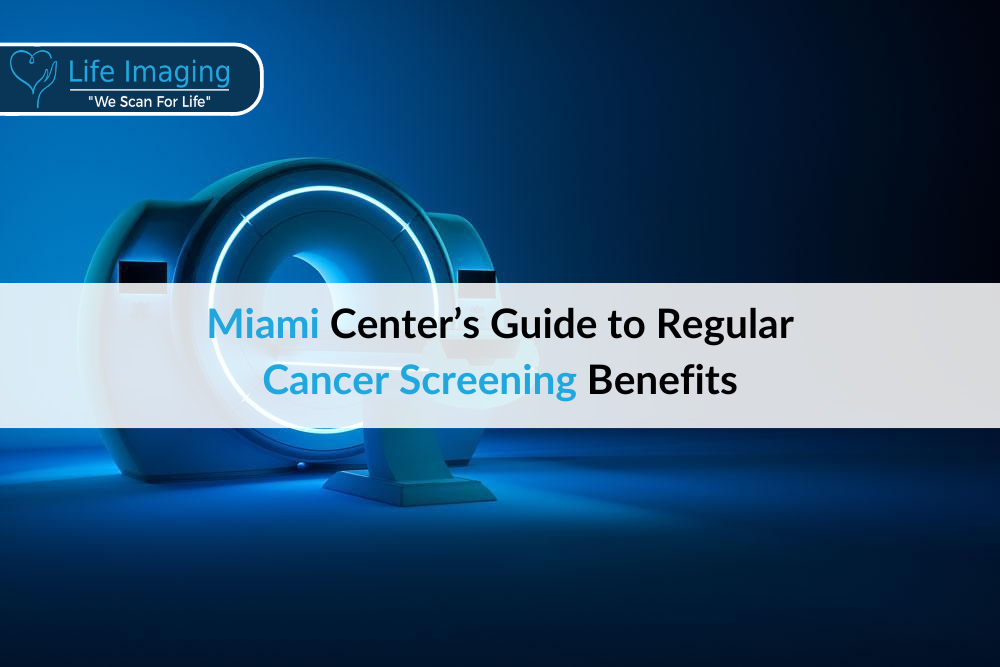
Cancer remains one of the most formidable health challenges worldwide, but early detection can dramatically improve outcomes. In that case, we offer a variety of advanced screening tests are available. These tests are crucial tools in identifying cancer at its earliest stages, even before symptoms appear, which often allows for more effective treatment options and a better prognosis.
Understanding the different types of cancer screening tests is essential for making informed decisions about your health. Screening tests vary depending on the type of cancer, the risk factors involved, and the technology available. Some tests are widely recommended for general screening in certain age groups, while others are more specific to individuals at high risk due to genetic factors or personal and family medical histories.
So, let’s explore the various cancer screening tests offered at Life Imaging Fla, including their purposes, how they are performed, and for whom they are recommended. We aim to provide clear, useful information that empowers you to engage with your healthcare providers about cancer screening proactively.
Whether you’re scheduling your first screening or continuing a regimen of regular check-ups, understanding these tests is a step forward in maintaining your health and well-being.
Cancer screening tests are powerful tools for detecting cancer early, often before symptoms develop. At Life Imaging Fla, a range of specialized tests helps identify various types of cancer, improving the chances of successful treatment and recovery. Below is an overview of some key screening tests available at our imaging center, focused on different types of cancer.
1. Lung Cancer Screening
Lung cancer is one of the most common and lethal cancers worldwide, but early detection can significantly increase survival rates. At Life Imaging Fla, we utilize low-dose computed tomography (CT) scans for lung cancer screening. This test is particularly recommended for individuals who are current or former heavy smokers. The low-dose CT scan is effective in spotting abnormal growths or nodules in the lungs that might indicate the presence of cancer.
2. Colon Cancer Screening
Colon cancer screening is vital as it can detect changes or abnormalities in the colon and rectum before they develop into cancer. Several types of tests are used to screen for colon cancer, including colonoscopy, fecal occult blood tests (FOBT), and stool DNA tests. At Life Imaging Fla, we primarily focus on visual exams such as colonoscopies where a long, flexible tube equipped with a camera explores the rectum and the entire colon.
3. Prostate Cancer Screening
For prostate cancer, screening tests include the Prostate-Specific Antigen (PSA) test and Digital Rectal Exams (DRE). The PSA test measures the level of PSA in the blood, with higher levels possibly indicating prostate cancer. We at Life Imaging Fla advise discussing the benefits and risks of these tests with your healthcare provider, as recommendations can vary based on age and family history.
4. Liver Cancer Screening
Screening for liver cancer is critical, especially for individuals at an increased risk, such as those with a history of liver diseases or hepatitis. At Life Imaging Fla, we use ultrasound tests alongside blood tests that measure alpha-fetoprotein (AFP) levels—a potential marker of liver cancer. Timely screening can help detect liver cancer at an early stage when it’s most treatable.
5. Stomach Cancer Screening
Early detection of stomach cancer can significantly enhance treatment success. At Life Imaging Fla, we utilize upper endoscopy as a primary screening test for detecting stomach cancer. This procedure involves inserting a thin, flexible tube equipped with a camera down the throat to directly visualize the stomach lining. It is particularly recommended for individuals with a family history of stomach cancer or those who exhibit symptoms like persistent stomach pain or unexplained weight loss.
6. Kidney Cancer Screening
For kidney cancer, Life Imaging Fla offers ultrasound and computed tomography (CT) scans as primary screening tools. These imaging tests help in identifying any unusual growths or abnormalities in the kidneys that might suggest the presence of cancer. Regular screening is particularly crucial for individuals with risk factors such as smoking, obesity, or a family history of kidney disease or kidney cancer.
7. Screening for Duodenal Cancer
The duodenum, the first part of the small intestine, can also be affected by cancer. Screening for duodenal cancer at Life Imaging Fla includes endoscopy, similar to stomach cancer screening. This method allows doctors to view the inside of the duodenum and test for abnormal tissue samples. Early detection through endoscopy can lead to more effective treatment options, significantly improving outcomes for affected patients.
8. Uterine and Cervical Cancer Screening
For women, screening for cancers of the uterus, including the cervix, is vital. Life Imaging Fla utilizes both Pap tests and human papillomavirus (HPV) testing to screen for cervical cancer. The Pap test involves collecting cells from the cervix, which are then examined under a microscope to identify pre-cancerous or cancerous changes. HPV testing detects the presence of HPV, a virus that can lead to cervical cancer. Regular screening is recommended for women starting from age 21 or within three years of becoming sexually active.
9. Chronic Obstructive Pulmonary Disease (COPD) and Lung Cancer Screening
COPD and lung cancer often present similar symptoms such as chronic cough and difficulty breathing. At Life Imaging Fla, low-dose CT scans are used to screen for lung cancer, particularly in individuals who have a history of heavy smoking or suffer from COPD. Early detection of lung cancer in COPD patients can substantially improve management and outcomes, as these conditions often require coordinated care.
10. Hairy Cell Leukemia Screening
Hairy cell leukemia, though rare, is another cancer type screened at Life Imaging Fla. This type of leukemia is usually detected through blood tests that review abnormal increases in certain blood cell counts, followed by further confirmatory tests such as bone marrow biopsies. Early diagnosis and treatment are crucial for managing this slow-growing cancer effectively.
11. Thyroid Screening for Cancer and Other Diseases
Thyroid cancer and other thyroid diseases can also be efficiently screened using ultrasound technology at Life Imaging Fla. This painless, non-invasive test helps identify lumps or nodules in the thyroid that may require further evaluation through a biopsy or additional imaging studies.
At Life Imaging Fla, we understand that each patient’s needs are unique. A screening schedule that works for one person may not be suitable for another. Factors such as age, family history, genetic predisposition, and personal health history play crucial roles in determining the most appropriate and beneficial screening tests.
As part of our commitment to personalized care, we work closely with each patient to create a screening plan that is not only thorough but also aligned with their specific health needs and risk factors. This approach ensures that the tests conducted provide meaningful, actionable information, greatly enhancing the effectiveness of prevention and early treatment strategies.
Carefully timing cancer screening tests is crucial for maximizing their effectiveness. At Life Imaging Fla, we follow evidence-based guidelines to determine the optimal frequency of screenings. For example, colon cancer screenings are generally recommended starting at age 45 for people at average risk, according to the American Cancer Society.
Frequency can vary based on the results and method chosen—every 10 years for a colonoscopy, for example, unless polyps are found. Meanwhile, lung cancer screenings with low-dose CT scans are typically suggested annually for those with a history of heavy smoking and are between 50 and 80 years old.
By adhering to these guidelines, we can help detect cancers early, when they are most treatable, while avoiding unnecessary repeated exposure to screening procedures.
Understanding the results of cancer screening tests is key to an effective health strategy. At Life Imaging Fla, results from screenings can generally be categorized into ‘normal’, ‘benign’, ‘suspicious’, or ‘cancerous’. Normal results suggest nothing abnormal was found during the screening process. Benign indicates non-cancerous growths, suspicious could imply further testing is needed, and cancerous results necessitate a more in-depth investigation and intervention.
Our professionals are skilled at ensuring that every patient understands their results. They provide clear explanations and guide patients on any necessary next steps, whether it’s a more detailed follow-up test or starting a treatment plan.
While screening is essential, reducing your cancer risk through lifestyle changes is equally vital. At Life Imaging Fla, we also focus on educating our patients about ways to lower their cancer risk. This involves discussions about nutrition, smoking cessation, regular exercise, and limiting alcohol intake. For instance, maintaining a healthy diet can reduce the risk of colon, stomach, and liver cancer.
Lifestyle adjustments that enhance overall health can significantly reduce the overall risk of developing cancer and other diseases, making them a critical component of preventive health care.
The field of cancer screening is continually advancing, with new technologies improving the accuracy and comfort of tests. At Life Imaging Fla, we embrace these advancements to provide the best care possible. For example, the use of digital imaging and artificial intelligence (AI) in reviewing screening test results has increased the ability to detect abnormalities at much earlier stages.
AI, in particular, offers the potential to analyze vast amounts of medical imaging data more quickly and accurately than ever before, which can lead to earlier detection and treatment of cancers that might otherwise go unnoticed until they are more advanced.
Additionally, advancements in genetic testing have enhanced our ability to identify individuals at high risk for certain types of cancer, such as breast, ovarian, and prostate cancer. This can lead to personalized screening schedules that begin earlier and occur more often for those at elevated risk, offering a much-needed layer of precaution.
Following a cancer screening, regardless of the results, Life Imaging Fla believes in supporting patients with comprehensive lifestyle guidance. This includes dietary recommendations, physical activity suggestions, and smoking cessation programs as needed. Even when tests return normal results, maintaining a healthy lifestyle plays a crucial role in preventing cancer and other diseases.
Educating patients about the importance of cancer screening and the availability of various tests is a priority for Life Imaging Fla. We ensure that patients are aware of why screenings are recommended, what the tests involve, and how often they should be performed. Education also involves discussing the potential outcomes of these tests and what steps should be taken afterwards, depending on the results.
The comprehensive array of cancer screening tests is an integral part of our commitment to early detection and preventive healthcare. Whether it’s lung, colon, prostate, or any other type of cancer, our state-of-the-art screenings are designed to detect potential issues early on, when they are often most treatable.
At Life Imaging Fla, our goal extends beyond mere diagnosis. We strive to educate and empower our patients to take charge of their health through informed decisions and proactive measures. Understanding the variety of cancer screening tests and their importance can dramatically influence outcomes, changing a potentially dire diagnosis to a manageable condition.
We encourage the Orlando community and beyond to prioritize regular screenings as a cornerstone of health maintenance. After all, taking such proactive measures can be the key difference in preventing serious health challenges or catching them early.
Are you ready to take control of your health with the best possible preventive care? Visit Life Imaging Fla to learn more about the cancer screening tests in Orlando, FL, and schedule an appointment today. Let us partner with you in your journey toward a healthier future, armed with knowledge and the best diagnostic tools available!

Coronary Artery Scan: What It Shows, Who Needs It, and
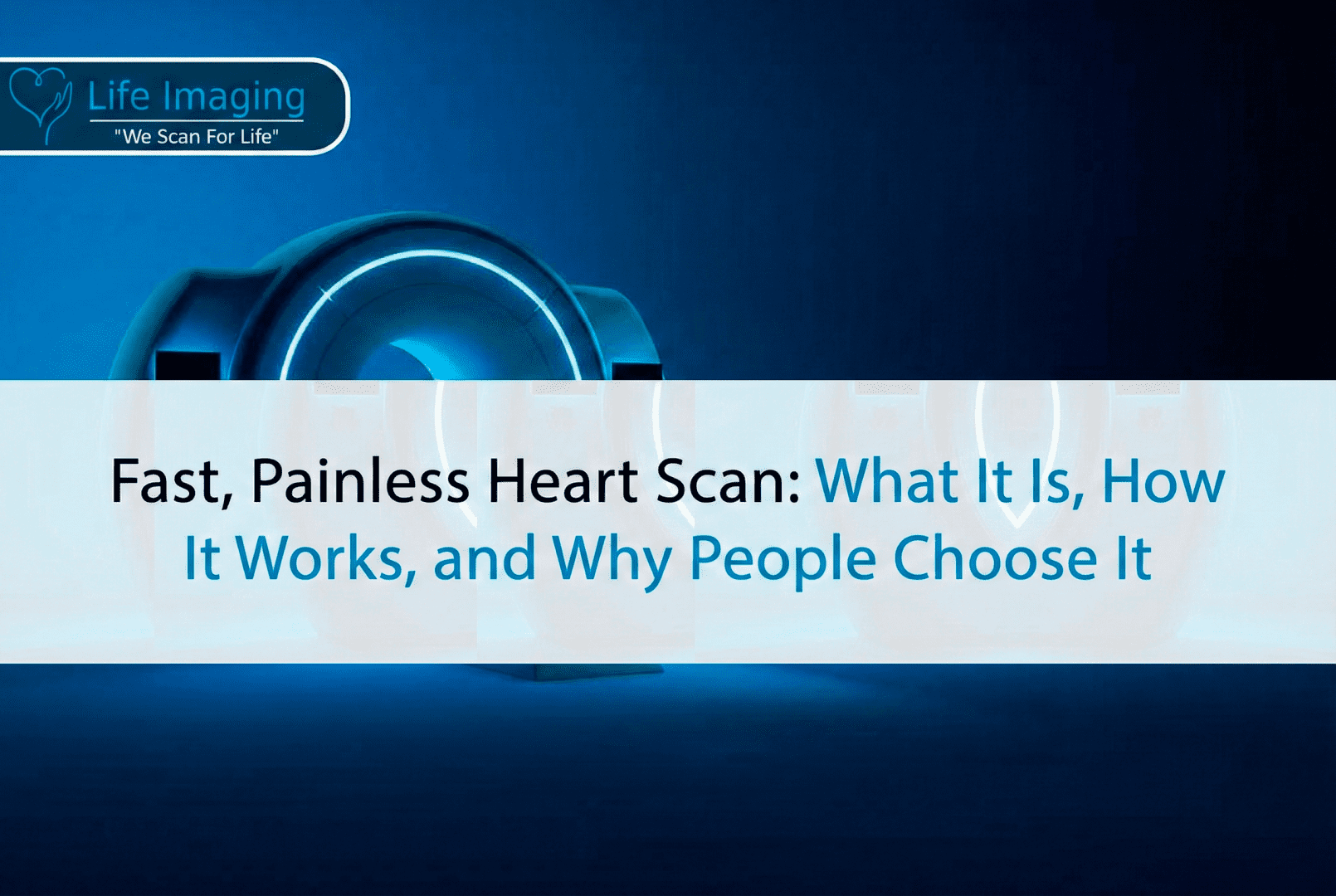
Fast and Painless Cancer Scan: What It Really Means PREVENTIVE
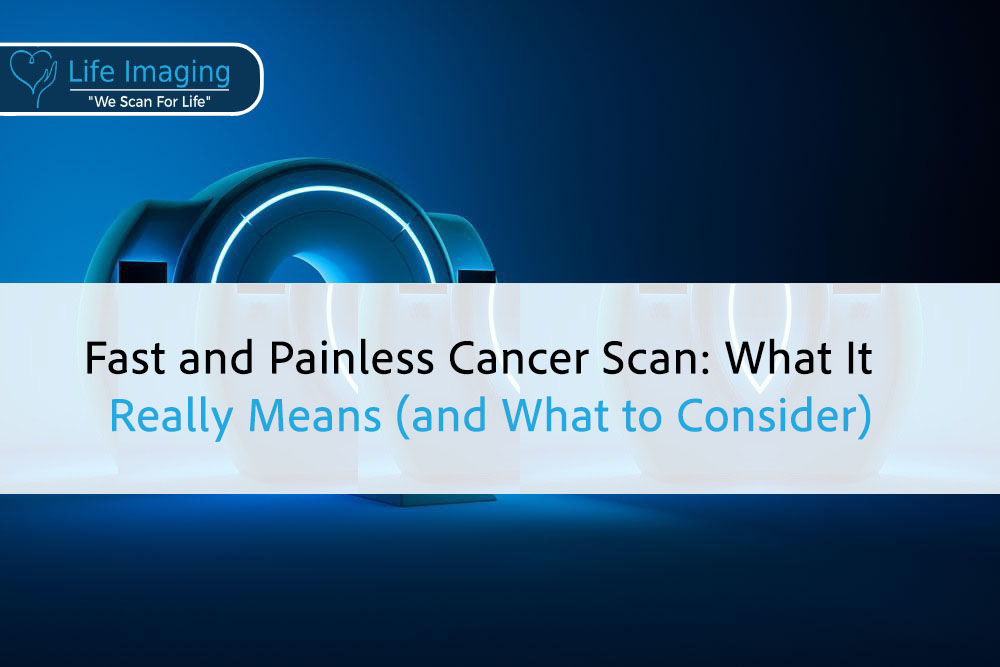
Fast and Painless Cancer Scan: What It Really Means (and
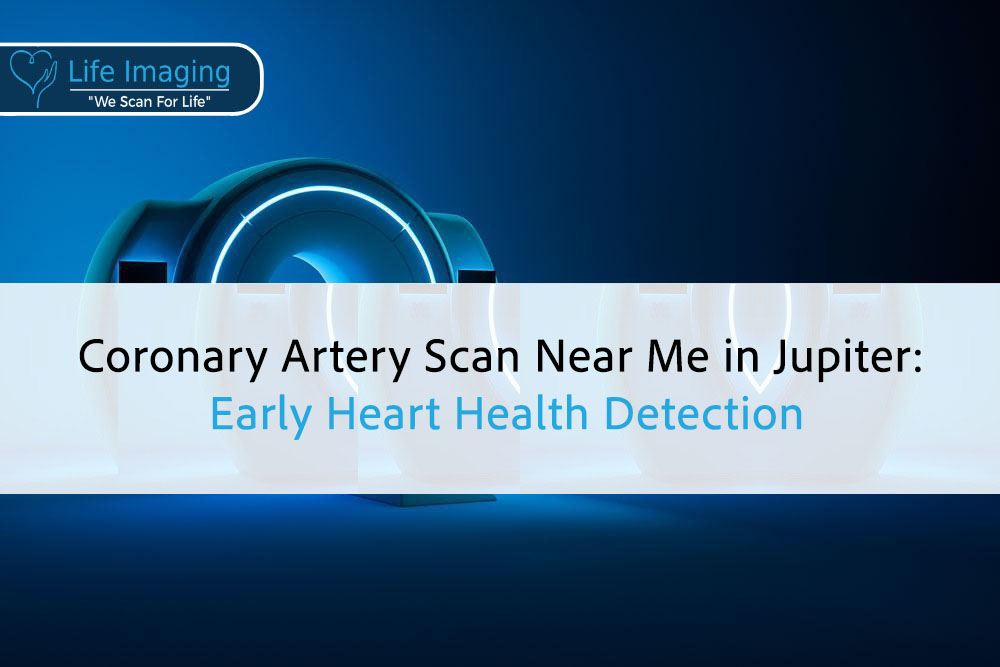
Introduction Your heart works hard every second of the day,
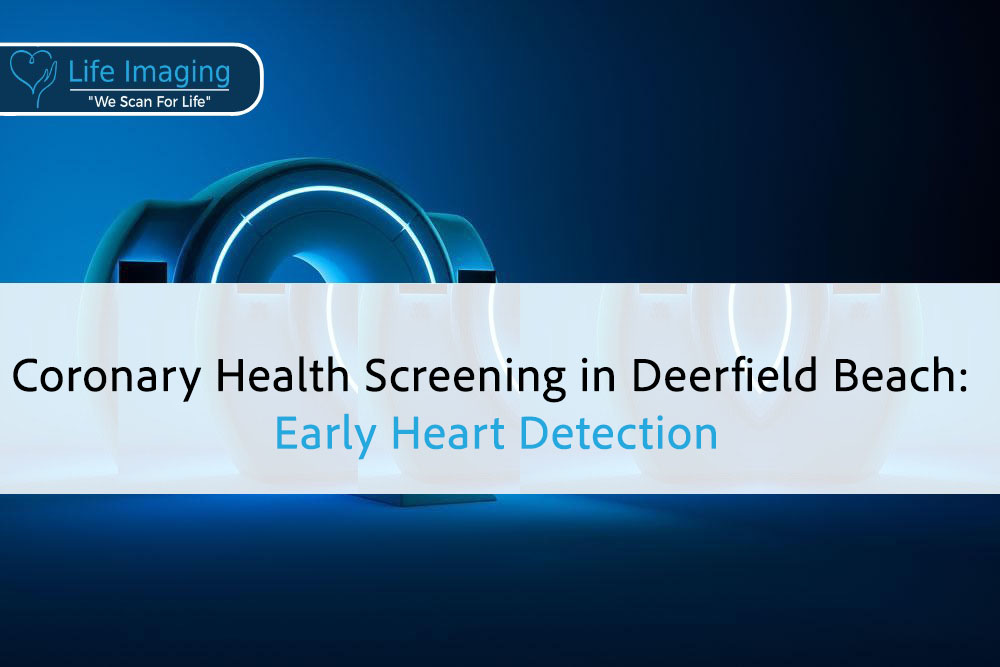
Introduction Your heart works around the clock, but changes inside

Introduction Your heart works nonstop, often without a single complaint.

* Get your free heart scan by confirming a few minimum requirements.
Our team will verify that you qualify before your scan is booked.
Copyright © 2025 Life Imaging – All Rights Reserved